Medical Grand Challenge 2020 Finale Night
Published: 28 Aug 2020
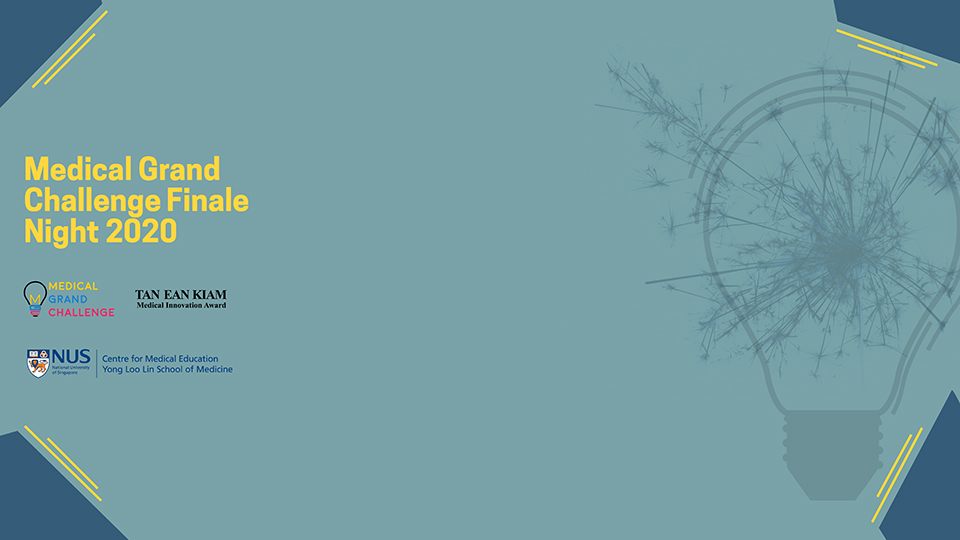
On the evening of 28 August, the fourth edition of the NUS Medical Grand Challenge (MGC) took place online for the first time. The innovative solutions of 21 teams were assessed by a panel of judges representing a variety of industries such as information technology, healthcare and engineering. Each team brought their proposal to life and had their ideas judged for impact on healthcare, innovation, business strategy, marketing and commercialisation. ARMAS — a team that worked on a soft robotic suit for nurses, that can augment muscle functions and apply forces torque to shoulder and lower back to help nurses carry loads — swept up the top prize in the Open Category and won the hearts of the audience, clinching the People’s Choice award. APTnea brought back top honours in the Nascent Category with a revolutionary redesign of the CPAP mask targeted at addressing Paediatric Obstructive Sleep Apnea (OSA), a condition with prevalence due to under-identification and difficult treatment.

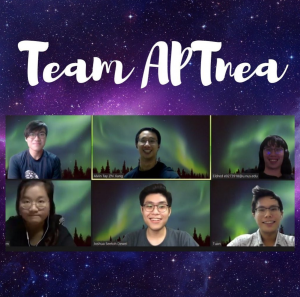
Runner up in the Open Category, TeleHealthHeroes, came up with an application to be used by both exercise coaches and doctors, by allowing coaches to provide doctors with critical information on the patient’s lifestyle, compliance to medications/lifestyle change and following them up during important phases of their treatment. Runners up in the Nascent Category were Good Pupils and Memory Box who worked on projects that sought to reduce myopia progression and prevalence among Singaporean children and decrease agitated behaviours, address high levels of depressive and anxiety symptoms, encourage socialisation, and potentially slow down cognitive decline in dementia patients, respectively. The Tan Ean Kiam Foundation sponsored the prizes for winners in the Nascent Category.
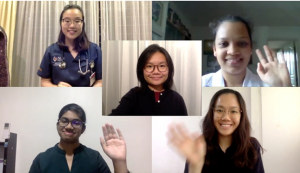
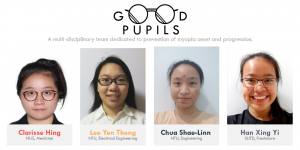
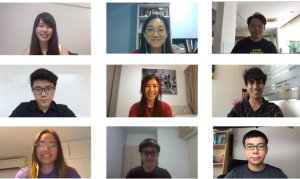
Organised by NUS Medicine, MGC began in 2017 and aims to inculcate a spirit of inquiry and hone problem-solving instincts among NUS Medicine undergraduates, while encouraging creativity and entrepreneurship. The multi-disciplinary nature of the competition also seeks to foster collaborative teamwork among students from different faculties and backgrounds. Over the past year, these students have gone through interdisciplinary boot camps to develop and refine their proposed solutions and prototypes, designed to address a number of existing healthcare problems.
Students from various NUS faculties such as Medicine, Nursing, Arts, Business, Computing, Engineering, Science and Law — and their counterparts from Nanyang Technological University (NTU), Yale-NUS, Singapore Management University (SMU) and Singapore University of Technology and Design (SUTD) — presented their innovative solutions to unmet healthcare challenges that the teams identified.
“The Medical Grand Challenge is an annual platform to showcase just how innovative our students can be. It nurtures creativity while encouraging participants to cultivate inquiring and entrepreneurial mindsets that would pursue creative and innovative solutions through collaborative work arrangements. An ability to work creatively in cross-disciplinary teams and strong desire to apply skills to real-life solutions is not exclusive to the call of medicine, but to anyone striving to succeed in their field of choice,” said Professor Chong Yap Seng, Dean of NUS Medicine.
Competing in two categories, teams in the Nascent Category presented proposed solutions to a clinical problem or unmet healthcare need they identified and tackled from scratch. Meanwhile, the Open Category saw teams working on projects initiated by industry experts who guided them as “Tech Mentors”; or improved on ideas offered in previous competitions. The Open Category also allowed for international teams who have previously participated in other similar competitions elsewhere, and the MGC welcomed visiting teams from the University of Utah, National University of Ireland Galway and Korea University College of Medicine (KUCM). This year’s Open Category teams all chose to pair up with “Tech Mentors”.
Some notable entries include a tool to improve remote assessment and triaging of potential COVID-19 patients to the right healthcare facility, a device aimed at reducing myopia progression in children, and a physician-mediated digital platform for anonymous discussions and knowledge-sharing on women’s health matters.
Read more in the press release here.






